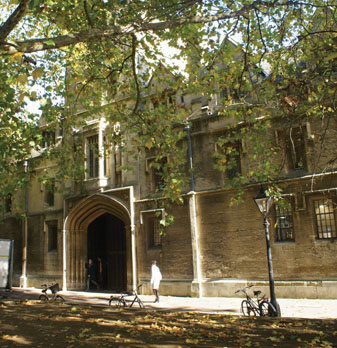The annual conference of the campus heads of security association AUCSO – next week in Leeds – each Easter vacation has become one of the longer and grander events in the UK private security calendar, which is a reflection of how AUCSO is one of the most flourishing of the 40 or more UK security bodies, and a sign of how the overall higher education (HE) sector in this country is booming. Mark Rowe singles out one of the two-day conference’s subjects.
It might have been a Friday in June 2019; it was pre-covid anyway, and I was walking in Headingley in Leeds, studentland. Two young men walked by holding hands. Without giving an opinion on that, I am of a generation that still finds such a sight noteworthy; as you can see. We can all think of non-university towns – and parts of Leeds, maybe – where those young men would not felt as comfortable about holding hands in public.
So it has always been, in and around universities. Five hundred years ago, students and academics at Oxbridge were taking up Lutheranism, feeling their way to what came to be called Protestantism; today, the protests and conflicts are myriad; what universities think and what that leads to in terms of self-expression and behaviour in one generation, the rest of society tends to do, or at least debate, in the next, because after all students leave university to become adult members of society.
That campuses are a ‘safe space’ (itself contentious) does tend towards the assumption that unis are liberal, left-leaning, even avant-garde, censorious and rebellious places; which does add to the work of university security departments, as featured in Professional Security magazine over the years, most recently in our interview with the deputy chair of AUCSO, Ollie Curran, deputy security manager at University College London (UCL), in February’s edition.
Except that self-expression at university also means that right-wingers can express themselves; and right-wing extremism is one of the topics at AUCSO 2022. Just as counter-terror police have been warning that right-wing extremism is a growing threat on a par with jihadism, a campus – purely because it is filled with thousands of intelligent, motivated and determined young people, a cross-section of society – can host extremists; invited speakers, and students on a spectrum from violent ‘banter’ to threats and actual physical violence against women, same-sex couples and any other minority.
While universities may shy away from acknowledging any extremism on their campus – it’s hardly good for the reputation, when teenagers (and their parents?!) come to choose a uni – security departments cannot. Anyway, it is a matter of public record that some terrorists have been students. One AUCSO member enjoys disconcerting any visiting police officers by pointing out where a past terrorist used to go for coffee. Likewise last month in its anti-semitic incidents report for 2021, the charity CST (Community Safety Trust) wrote that last year saw ‘the highest number of campus-related incidents ever recorded across a calendar year’.
You only have to walk around a campus – and there’s little or nothing to stop you walking onto Leeds, or Leeds Beckett nearby, or any number of urban campuses; indeed they may welcome you to, to spend money in their cafes, even art galleries, and enjoy their facilities generally – to see that overwhelmingly the vibe is of safety and liberty, rather than violent extremism. Indeed, the unsolved paradox for liberals is that extremists are taking advantage of liberal freedoms; just as the challenge in security terms is that bicycle thieves and fraudsters, anyone, can freely come onto a campus.
Security departments, headed and supervised by AUCSO members, are charged with maintaining that safety; hence the significance of AUCSO chair Les Allan’s change of title at Heriot-Watt University, from security (harsh sounding) to safeguarding (reflecting the shift in campus security towards caring for student and visitor well-being, including emotionally).
While quite a change from the campus security of even ten years ago – locking and unlocking doors, writing out car parking passes – as ever, there’s nothing new under the sun. Here’s another Yorkshire story. The University of York dates from the 1960s; its colleges were modelled on Oxford (pictured) and Cambridge, as were the ‘porters’, whose job it was to keep an eye on student rooms, in the widest sense, to keep intruders out, and to have a word with trouble-makers, and to look out for the unhappy; in a word, to serve.
Last summer I was in York for a day and began at a city centre cafe; there I read a York student newspaper. One article used Freedom of Information (FoI) requests to learn how many and which security and other staff had taken mental health first aid training – something that AUCSO has brought on, for its members. The tone of the article was striking; asking, why are not all campus security staff trained in mental health first aid, to help students in distress? It was an all too rare insight into what students – and any consumers of private security – think of the service that they are, after all, paying for.










